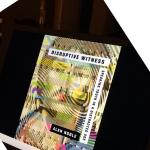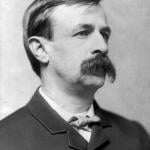Sometimes, oftentimes, I dread being alone and in silence, because silence reminds me of my faults, my own grievious faults. Silence is, however, the very cure. I can distract myself, but then I cannot know myself and as Socrates, sub-tweeting Jesus, would remind us: we must know ourselves.
This is what Alan Noble reminds us to do. He knows endless distraction and how it keeps him from wisdom.
Let us attend to him. Many of us have this as an internal life:
A friend once described a similar feeling of existential dread to me. He said it would hit him only when he woke up in the morning. Sometimes he’d feel like killing himself. It wasn’t something he shared with friends. But he’d get this sick feeling—like there’s no point to any of it—every morning. He said he needed something more to get him up in the morning. My friend could stave off this sense of hopelessness all day, except for those few moments right after he woke up. Lying in bed, he could feel the pressure of being alive constrict his breath. But once he got moving, drank his coffee, watched the news, and went to work, he was okay. He got swept up into the movement of the day, as most of us do.
Isn’t this because we need forgiveness? We have experience and so lost all innocence. Who can stand our failure to be or to have been what we ought? I have known people crippled internally, with a mind in a fetal position, unable to go forward, because they can only look back at failure.
Sufficient to the workday are the anxieties and frustrations thereof.
Just so, Alan Noble.
What if, just maybe, there is no unscheduled time? What if we are busy even in our “unscheduled” time because that is the time we have scheduled to be unscheduled?
There’s no space in our modern lives that can’t be filled up with entertainment, socializing, recording, or commentary.
We came, we saw, we were distracted. Obviously, demons have always distracted us from what was good, true, and beautiful. Look hard at a pencil, you will see beauty if one can get off Twitter long enough. If one stops, thinks, then one will run a risk of seeing God and God is not “ok” with the persons we are. Instead, God insists we change. This begins in life as it is and not life as we wish it could be:
Of course, to some extent, this has always been our human experience; we’ve always experienced life as an interconnected web. But with the tremendous growth of technology and the media, of life as public performance, our ability to resist mediation has declined. In our world, we have to fight harder to experience the present shorn of stultifying mediation. And that fight is for mindfulness.
“Grant me silence, God,” we pray loudly as we demand less noise.
Dickens is too fond of change, Disraeli of tradition, but Noble has balance: we are as we are, now how do we flourish? In this way, Noble is Trollope in our time: the writer who will conserve without reaction, change without Revolution. Thank God for such a stance.
Noble suggests that we are the decoupage people: many things pasted together in an unattractive whole that can still be called art.
Buy the book.
_______________________
Alan Noble is the “co-founder and editor in chief of Christ and Pop Culture.” If you are not reading Christ and Pop Culture and you are interested in Christ and/or Pop Culture, then bad. Go and subscribe.











